
Research is a team effort
We are always looking for enthusiastic and talented people. Please refer to “joining the lab”.
Lab Members
Thorsten Edwin Boroviak, PhD
Lab head
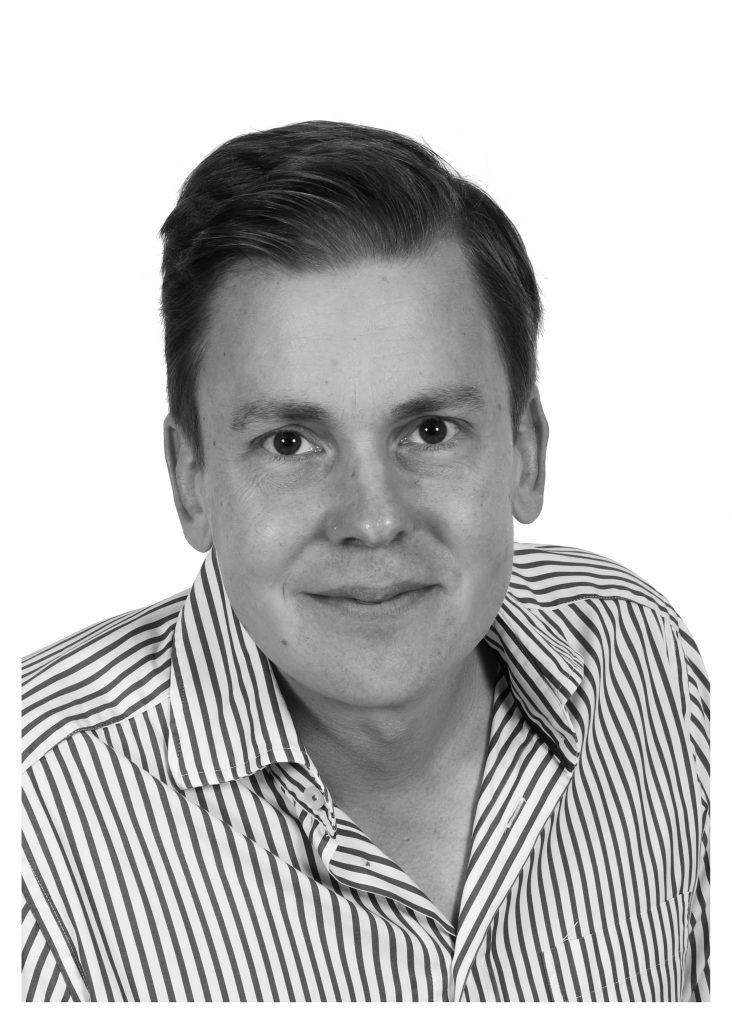
Thorsten originates from Austria, where he studied Molecular Biology at the University of Vienna. After completion of his master’s thesis, he was awarded a PhD-fellowship at the University of Sheffield to work on neuronal differentiation of mouse embryonic stem cells. Following his passion for pluripotency, he joined the laboratories of Prof. Austin Smith and Prof. Jennifer Nichols in 2010. His early postdoctoral research addressed the relationship of pluripotent embryonic stem cells to the early embryo. Thorsten established that the closest in vivo counterpart of mouse embryonic stem cells is the preimplantation epiblast. He also pioneered single-cell RNA-seq in marmoset embryos, which identified a primate-specific role for WNT signalling during early lineage specification. In 2017, Thorsten was awarded a Sir Henry Dale Fellowship to start his own group – the Laboratory for Primate Embryogenesis –at the University of Cambridge. Since 2023, his group operates across two lab sites, one at the Cambridge Stem Cell Institute and one in the Department of Physiology, Development and Neuroscience. The ongoing work in his group aims to unravel early human development with next-generation stem cell-based embryo models. Thorsten is a Fund Manager of the Anne McLaren Trust Fund and Fellow of Darwin College.
Christopher Penfold, PhD
Research associate
 Chris was born in Lewisham and grew up in Essex, UK. At undergraduate level he studied Physics with Space Science and Technology at Leicester University before moving to Sheffield to undertake a PhD in Biophysics in the Department of Molecular Biology and Biotechnology. In 2010, he moved to Warwick for his postdoc position, where he used machine learning and dynamical systems approaches to understand plant transcriptional responses to stress. Chris then moved to Cambridge to pursue his interest in developmental biology, first working in the labs of Azim Surani and John Gurdon, before joining Boroviak lab in 2019 to investigate early primate development with a particular interest in synthetic embryos. Outside of the lab Chris is interested in iaido and jodo.
Chris was born in Lewisham and grew up in Essex, UK. At undergraduate level he studied Physics with Space Science and Technology at Leicester University before moving to Sheffield to undertake a PhD in Biophysics in the Department of Molecular Biology and Biotechnology. In 2010, he moved to Warwick for his postdoc position, where he used machine learning and dynamical systems approaches to understand plant transcriptional responses to stress. Chris then moved to Cambridge to pursue his interest in developmental biology, first working in the labs of Azim Surani and John Gurdon, before joining Boroviak lab in 2019 to investigate early primate development with a particular interest in synthetic embryos. Outside of the lab Chris is interested in iaido and jodo.
Sik Yin Ho “Jessie”
Research associate
 Jessie was born and raised in Hong Kong. She became keen on pursuing a career in scientific research after completing the Dual Program at the Hong Kong University of Science and Technology during secondary school. In 2015, Jessie started her bachelor’s degree from the University of Hong Kong (HKU), double majoring in Biochemistry and Italian. During her undergraduate studies, she was the recipient of multiple awards, including the HSBC Hong Kong Scholarship. After being accepted into the HKU Undergraduate Research Fellowship Programme, she worked in Dr. Alan Wong’s group and designed single guide RNA scaffolds for optimized gene editing for her dissertation project. She then received the Hong Kong PhD Fellowship to undertake a PhD in Biomedical Sciences at HKU in 2019. She joined the lab of Dr. Ralf Jauch and subsequently wrote her thesis on engineering SOX17 for cell fate reprogramming in mouse cells. In 2024, Jessie joined the Boroviak lab to work on the generation of marmoset blastoids for studying early primate development. In her free time, Jessie enjoys playing tennis and quadball, playing the guitar and singing.
Jessie was born and raised in Hong Kong. She became keen on pursuing a career in scientific research after completing the Dual Program at the Hong Kong University of Science and Technology during secondary school. In 2015, Jessie started her bachelor’s degree from the University of Hong Kong (HKU), double majoring in Biochemistry and Italian. During her undergraduate studies, she was the recipient of multiple awards, including the HSBC Hong Kong Scholarship. After being accepted into the HKU Undergraduate Research Fellowship Programme, she worked in Dr. Alan Wong’s group and designed single guide RNA scaffolds for optimized gene editing for her dissertation project. She then received the Hong Kong PhD Fellowship to undertake a PhD in Biomedical Sciences at HKU in 2019. She joined the lab of Dr. Ralf Jauch and subsequently wrote her thesis on engineering SOX17 for cell fate reprogramming in mouse cells. In 2024, Jessie joined the Boroviak lab to work on the generation of marmoset blastoids for studying early primate development. In her free time, Jessie enjoys playing tennis and quadball, playing the guitar and singing.
Carlos Ceballos Gonzalez
Research associate
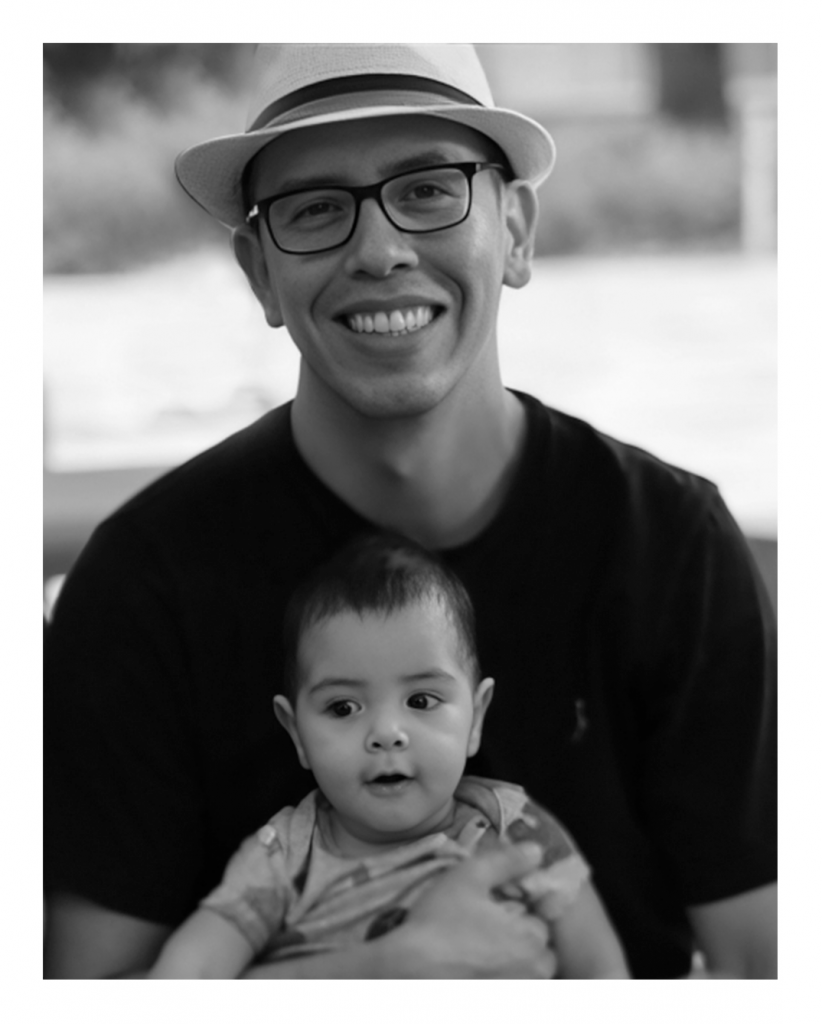 Carlos is a bioengineer with a PhD and MSc (Summa Cum Laude) in Biotechnology from Tecnologico de Monterrey, Mexico. He originates from Cali, Colombia, where he obtained his Bachelor’s degree in Engineering at Universidad del Valle. During his graduate studies, he was a visiting research scholar at the University of California-Los Angeles, the Terasaki Institute for Biomedical Innovation, and the University of Cambridge. Carlos is trained in 3D-bioprinting, microfluidics, and stem cell biology. He published nine papers from his PhD work and submitted two patent applications to the United States Patent Office. Following his fascination of how the embryo builds all the tissues of the body, he joined the Laboratory for Primate Embryogenesis at the University of Cambridge to investigate body axis formation using human embryo models. Carlos enjoys working collaboratively in multicultural environment and seeks to nurture a positive research culture where everyone shines. Outside of the lab, you can find Carlos walking around Cambridge with his wife and his son.
Carlos is a bioengineer with a PhD and MSc (Summa Cum Laude) in Biotechnology from Tecnologico de Monterrey, Mexico. He originates from Cali, Colombia, where he obtained his Bachelor’s degree in Engineering at Universidad del Valle. During his graduate studies, he was a visiting research scholar at the University of California-Los Angeles, the Terasaki Institute for Biomedical Innovation, and the University of Cambridge. Carlos is trained in 3D-bioprinting, microfluidics, and stem cell biology. He published nine papers from his PhD work and submitted two patent applications to the United States Patent Office. Following his fascination of how the embryo builds all the tissues of the body, he joined the Laboratory for Primate Embryogenesis at the University of Cambridge to investigate body axis formation using human embryo models. Carlos enjoys working collaboratively in multicultural environment and seeks to nurture a positive research culture where everyone shines. Outside of the lab, you can find Carlos walking around Cambridge with his wife and his son.
Ana Orsi
PhD student
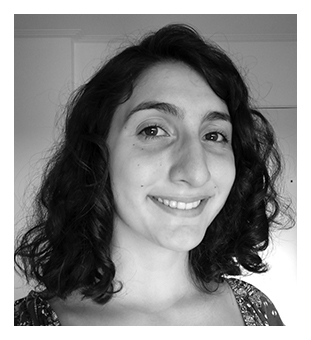 Ana was born in Brazil, where she obtained her bachelor’s degree at the University of São Paulo. During her undergraduate studies, she was the recipient of the Sanger Prize and had the opportunity to carry out a research internship at Sarah Teichmann’s lab, where she analysed single-cell RNA sequencing datasets of the human lung. She then obtained a master’s degree working at Lygia Pereira’s lab at the University of São Paulo, with a research internship at Jun Wu’s lab at UT Southwestern. Her thesis work consisted in investigating in vitro models for the study of human X chromosome inactivation, including naïve pluripotent stem cells and blastoids. Her newly found passion for early development led her to join the Boroviak lab in 2023 for her PhD studies. Ana is funded by a CTR studentship and will be investigating the molecular mechanisms hypoblast differentiation.
Ana was born in Brazil, where she obtained her bachelor’s degree at the University of São Paulo. During her undergraduate studies, she was the recipient of the Sanger Prize and had the opportunity to carry out a research internship at Sarah Teichmann’s lab, where she analysed single-cell RNA sequencing datasets of the human lung. She then obtained a master’s degree working at Lygia Pereira’s lab at the University of São Paulo, with a research internship at Jun Wu’s lab at UT Southwestern. Her thesis work consisted in investigating in vitro models for the study of human X chromosome inactivation, including naïve pluripotent stem cells and blastoids. Her newly found passion for early development led her to join the Boroviak lab in 2023 for her PhD studies. Ana is funded by a CTR studentship and will be investigating the molecular mechanisms hypoblast differentiation.
Clara Munger
PhD student
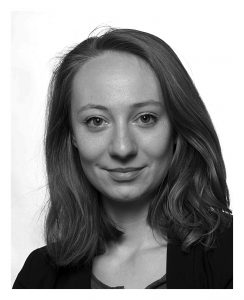 Clara originates from a scenic medieval village in the east of France. After high school, she moved to Paris to start an intensive 2-year course in biology, chemistry and physics in preparation for the nationwide entrance exams for the top engineering universities. She obtained a place in AgroParisTech, France’s leading Institute of Technology for Life, Food and Environment Sciences, where she is specializing in Molecular and Cell Bioengineering. In the course of her studies, Clara became fascinated by embryology and sought to extent her knowledge in this field. She previously worked in France’s National Institute for Agronomic Research, where she studied epigenetic histone marks during genome activation in different species. Clara joined the Boroviak lab in June 2019 to work on 3D-cultures of marmoset pluripotent stem cells. In her master thesis, she established a microfluidic workflow to generate amnion and epiblast-spheroids and now, in her PhD project, leverages this high-throughput system to delineate embryonic disc and amnion formation in human and non-human primate development. Clara has won multiple awards, including the prestigious GATES-scholarship.
Clara originates from a scenic medieval village in the east of France. After high school, she moved to Paris to start an intensive 2-year course in biology, chemistry and physics in preparation for the nationwide entrance exams for the top engineering universities. She obtained a place in AgroParisTech, France’s leading Institute of Technology for Life, Food and Environment Sciences, where she is specializing in Molecular and Cell Bioengineering. In the course of her studies, Clara became fascinated by embryology and sought to extent her knowledge in this field. She previously worked in France’s National Institute for Agronomic Research, where she studied epigenetic histone marks during genome activation in different species. Clara joined the Boroviak lab in June 2019 to work on 3D-cultures of marmoset pluripotent stem cells. In her master thesis, she established a microfluidic workflow to generate amnion and epiblast-spheroids and now, in her PhD project, leverages this high-throughput system to delineate embryonic disc and amnion formation in human and non-human primate development. Clara has won multiple awards, including the prestigious GATES-scholarship.
Eric Maximilian Lycke “Max”
PhD student
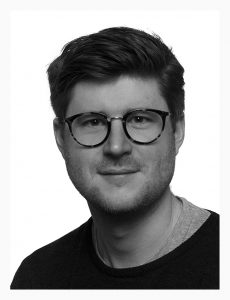 Max was born in Toronto, Canada and raised in Oslo, Norway. His name is a pun in Norwegian, meaning maximum joy or good fortune, we hope he stays true to his name. He obtained his bachelor degree in Molecular Biology from the University of Oslo with an exchange at UCSD, where a course on stem cell biology encouraged him to pursue further research in this field. On returning to Oslo, he began his master’s project in Gareth Sullivan’s lab at the Norwegian Center for Stem Cell Research. His work focused on the cell signalling behind differentiation towards definitive endoderm in human pluripotent stem cells.
Max was born in Toronto, Canada and raised in Oslo, Norway. His name is a pun in Norwegian, meaning maximum joy or good fortune, we hope he stays true to his name. He obtained his bachelor degree in Molecular Biology from the University of Oslo with an exchange at UCSD, where a course on stem cell biology encouraged him to pursue further research in this field. On returning to Oslo, he began his master’s project in Gareth Sullivan’s lab at the Norwegian Center for Stem Cell Research. His work focused on the cell signalling behind differentiation towards definitive endoderm in human pluripotent stem cells.
He continued working in the Sullivan lab after his master’s thesis was submitted, followed by a year working as a research assistant in the Krauss Group at the Hybrid Technology Hub, University of Oslo. This work focused on the responsiveness of cancer cell lines to a drug called G007-LK, a potent tankyrase inhibitor. He then worked for a year in the Choudhary Group at the Novo Nordisk Foundation Center for Protein Research in Copenhagen, gaining experience in cell line editing for proteomic analysis. Max joined the Boroviak lab for his PhD in October 2019 and will be developing gel encapsulated 3D models of gastrulation.
Yuxi Ding
Visiting MD/PhD student
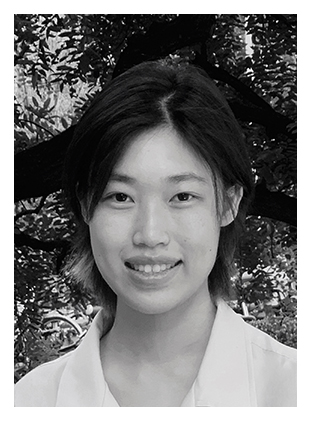 Yuxi was born in Ruian, China. After high school, she enrolled in the 8-year M.D. program to study clinical medicine at Tsinghua University. She received her B.S. in life sciences and was qualified as an M.D./Ph.D. candidate in 2023. Yuxi has a keen interest in reproductive biology and embryology. She joined Dr. Kehkooi Kee’s group in her undergraduate years at Tsinghua, where she was devoted to revealing the molecular change behind EIF4ENIF1-deficient patients with Premature Ovarian Insufficiency using transgenic mouse models. In 2023, Yuxi won a scholarship by Tsinghua Medicine to pursue an overseas exchange, which allowed her to join the Boroviak lab as a visiting research student. Yuxi’s project aims to identify the key regulators of hypoblast-related lineage specification using in-vitro differentiation systems and embryo models.
Yuxi was born in Ruian, China. After high school, she enrolled in the 8-year M.D. program to study clinical medicine at Tsinghua University. She received her B.S. in life sciences and was qualified as an M.D./Ph.D. candidate in 2023. Yuxi has a keen interest in reproductive biology and embryology. She joined Dr. Kehkooi Kee’s group in her undergraduate years at Tsinghua, where she was devoted to revealing the molecular change behind EIF4ENIF1-deficient patients with Premature Ovarian Insufficiency using transgenic mouse models. In 2023, Yuxi won a scholarship by Tsinghua Medicine to pursue an overseas exchange, which allowed her to join the Boroviak lab as a visiting research student. Yuxi’s project aims to identify the key regulators of hypoblast-related lineage specification using in-vitro differentiation systems and embryo models.
Ceren Canse
Master student
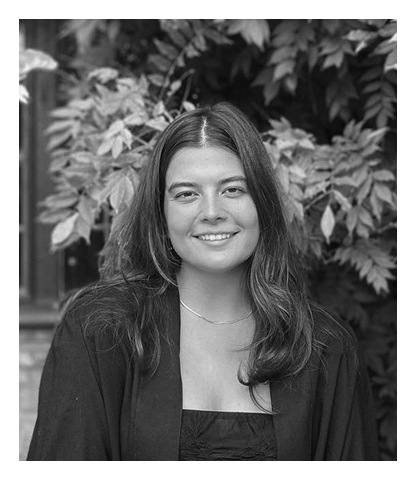
Ceren was born and raised in Istanbul, Turkey. She is an aspiring physician-scientist with a scientific and social interest in women’s and reproductive health. She graduated from Yeditepe University Faculty of Medicine as the valedictorian on July 2023. As part of her internship year, she attended Oxford University’s elective programme for medical students doing a placement in Obstetrics and Gynaecology at John Radcliffe Hospital, where she had the opportunity to develop an insight into the recent discussions around reproductive biology and the pathophysiology of mal-placentation mediated obstetric complications. She decided to pursue an MPhil in Biological Sciences focusing on reproduction and embryogenesis to deepen her understanding of the molecular mechanisms behind cell fate determination and lineage segregation of early peri-implantation embryos. As part of the Boroviak lab, she will be working on a microfluidic-based human stem cell model to contribute to elucidate the mechanisms of amnion formation. She is a Cambridge Trust scholar, holding a Turkish Education Foundation (UK) Cambridge Masters Scholarship. Outside of the lab, you can find her in front of a piano or doing pottery.
Thomas Tan
Research assistant
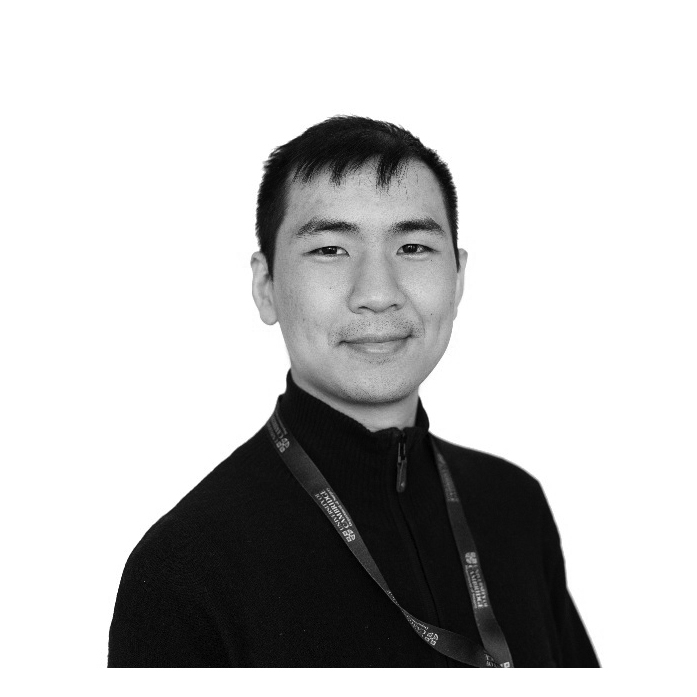
Thomas was born in Beijing, China. Growing up in Hong Kong, he became interested in biology and medicine after strong encouragement from his biology teacher. Thomas graduated from Leeds University holding a BSc in Human Physiology with a thesis investigating heart failure. He expanded on this subject during his MSc in Medical Bioscience at Linköping University (Sweden) working on MAPK genes in chicken embryonic cardiomyocytes. Thomas joined the University of Cambridge in late 2020 as a research assistant in the Department of Surgery. His work included histological characterisation of human organoids, cell culture, tissue processing, and administrative duties. In October 2023, Thomas joined the Boroviak lab at the Cambridge Stem Cell Institute. His main focus is the setup, expansion and maintenance of human and non-human primate pluripotent stem cell lines and genome engineering.
Maria Ubach
Research visitor
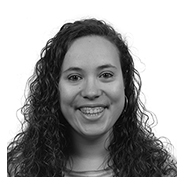
Maria was born in Barcelona, where she obtained her bachelor’s degree in Genetics at the Autonomous University of Barcelona. In her last year she undertook a research project investigating centrosome and centriole dynamics in tetraploid colorectal cancer cells. After graduating from her bachelor’s degree, she enrolled at the University of Helsinki to study a master’s degree in Genetics and Molecular Biosciences. In Helsinki, she enrolled in the Environmental Epigenetics research group where she worked as a research assistant looking for molecular and epigenetic cues in placental tissue upon smoking and drinking alcohol during pregnancy. Her master’s thesis project was performed at Juha Kere’s Early embryo development and complex human diseases research group. Maria’s objective was to induce trophectoderm differentiation from human pluripotent stem cells using CRISPR activation methods. In 2022 she was awarded a HiLIFE-traineeship scholarship that provided her with the opportunity to join the Boroviak lab for an internship placement in October 2023. In the Boroviak lab, Maria works on in vitro implantation platforms to model human development.
India Grigson
Undergraduate student
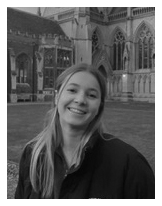
India was born in London and grew up here in Cambridge. Having finished her A Levels, she moved an incredible 3 miles to begin her undergraduate training as a medical student at the University of Cambridge. In her preclinical years she became captivated by embryology and reproductive biology and was on the lookout for any opportunity to explore the field more. India still finds it amazing that such complicated and yet perfectly organised human anatomy can arise from such a simple origin. She is particularly interested in how early embryonic development can shape later aspects of development. In the Boroviak lab, she is using bioinformatics techniques to investigate the role of the extracellular matrix in the bifurcation of the amnion and embryonic disc cell lineages. India hopes to continue to follow her passion for reproductive biology by pursuing a Masters in the field of embryology before continuing with her clinical medicine studies.
Lab Alumni
Dylan Siriwardena, PhD student
Yutong Chen, undergraduate student
Erin Slatery, PhD student
Sophie Bergmann, PhD student
Fan Yuan, Research visitor
Igor Orsine de Almeida, Master student
Songyang Li, Master student
Adam Pavlinek, undergraduate student
Magdalena Schindler “Lena”, Master student
Ioakeim Ampartzidis “Makis”, Master student
Ania Malkowska, Rotation student
Connor Ross, PhD student
Oriol Caritg, MD, Rotation student
Pedro Madrigal, Research Associate
Collaborators
Prof. Erika Sasaki
Central Institute for Experimental Animals, Tokyo, Japan
Prof. Ruediger Behr
German Primate Center, Goettingen, Germany
Prof. Wolf Reik
Altos Labs, Cambridge, UK
Prof. Florian Hollfelder
Department of Biochemistry, University of Cambridge
Prof. Azim Surani
Gurdon Institute, University of Cambridge, UK
Prof. Kathy Niakan
Centre for Trophoblast Research, Cambridge, UK
Prof. Jenny Nichols
The University of Edinburgh, UK
Prof. Austin Smith
University of Exeter, Living Systems Institute, Exeter, UK
Dr. Srinjan Basu
Cambridge Stem Cell Institute, Cambridge, UK
Prof. Jan Brosens
Warwick Medical School, Coventry, UK
Prof. Kenny Dalgarno
Newcastle University, School of Engineering, Newcastle, UK
Dr. Peter Rugg-Gunn
Babraham Institute, Babraham, UK